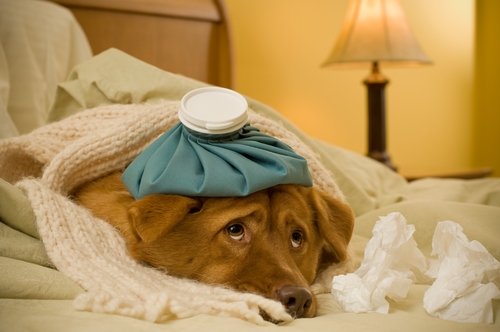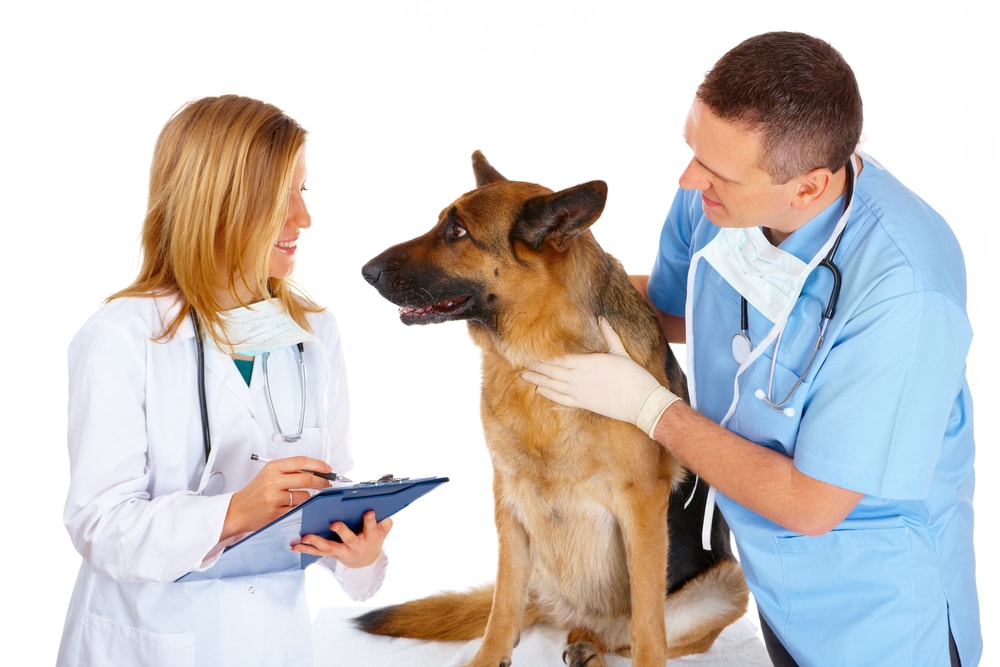The canine influenza virus (CIV) is a relatively new virus and is part of the canine infectious respiratory disease complex, also known as ‘kennel cough.’

H3N8 was initially an influenza virus occurring in horses. The equine virus mutated and can now be transmitted among dogs as well.
The canine influenza virus is unrelated to any known human virus, and it is not a zoonotic disease, meaning your dog can’t pass it on to human family members.
Canine Influenza Transmission and Symptoms
According to Dr. Cynda Crawford, clinical assistant professor in the Maddie’s Shelter Medicine Program at the University of Florida College of Veterinary Medicine inGainesville, and one of two people who discovered the existence of H3N8:
Virtually all dogs exposed to the canine influenza virus become infected; about 80 percent develop a flu-like illness, while another 20 percent do not become ill. Fortunately, most dogs recover within two weeks without any further health complications. However, some dogs progress to pneumonia, which is usually due to secondary bacterial infections.
H3N8 CIV is highly contagious and is associated with overcrowded conditions like those found in some shelters, kennels and dog racing facilities.
Stressful environments are also closely linked to outbreaks of CIV.
The infection can also be spread from one dog to another by human hands, clothing, bowls, toys, tools – any method of transmission that can pick up the virus from one dog and deliver it to another.
Symptoms include an acute onset of coughing, sneezing, nasal discharge, fever and lethargy. Symptoms typically last a week or two.
Infected dogs will shed the virus for about seven days, with peak shedding during the first two to four days of infection but before onset of symptoms. This makes it difficult to isolate your dog during the time when the infection is most likely to be transmitted to other dogs. But as soon as acute symptoms appear, you should keep your pet away from other dogs to reduce the risk of spreading the infection.
Also use proper sanitation (wash hands, disinfect tools and surfaces) after handling a sick dog to reduce the risk of transmitting the virus between dogs.
CIV Vaccines
Just say no!
Too many vaccines, in particular non-core vaccines like those for CIV, can wreak havoc on your dog’s immune system, actually compromising its ability to protect your pet from pathogens like the H3N8 virus.
Unfortunately, many vets jump on the ‘latest and greatest vaccine’ bandwagon, making every recently created vaccine a part of their required protocol.
The only vaccine required by law is the rabies vaccine. If a particular veterinary clinic tells you any other vaccine is ‘required,’ they are citing their own business policy – not state law. If any pet-related enterprise (vet practice, groomer, boarding kennel, etc.) has vaccine requirements you don’t agree with, you’re under no obligation to do business with them. You’re free to take your pet elsewhere, which is certainly what I would do rather than submit my dog or cat to unnecessary, potentially toxic vaccines.
Also, an H3N8 vaccine doesn’t protect your dog against infection – it only reduces viral shedding and may lessen the severity and duration of symptoms.
It is unlikely most family dogs will be in a situation to contract CIV, but even if your pet does acquire the virus, chances are she’ll recover quite nicely without medical intervention, thanks to a healthy immune system.
If your dog’s symptoms seem to be getting worse, make an appointment with your vet for an exam. Because influenza symptoms are similar to those of other viral and bacterial pathogens common in canine infectious respiratory disease complex, in order to make a definitive diagnosis your vet will need to test for either viral shedding or the existence of serum antibodies.
Natural Remedies for CIV
The best remedy for canine influenza is, of course, prevention.
- Feed your favorite furry companion a balanced, species-appropriate diet.
- Keep his immune system in top shape by avoiding unnecessary vaccinations and overuse of veterinary drugs and chemical parasite and pest preventives.
- Reduce the environmental toxins your dog is exposed to, which will in turn lesson his toxic burden and biological stress.
If your dog is exposed to the influenza virus, I recommend you ask your holistic vet about homeopathic nosodes and remedies for symptom relief.
Also inquire about natural immune boosters like turmeric, oregano and fresh garlic, as well as useful herbs and essential oils to support the immune system.

